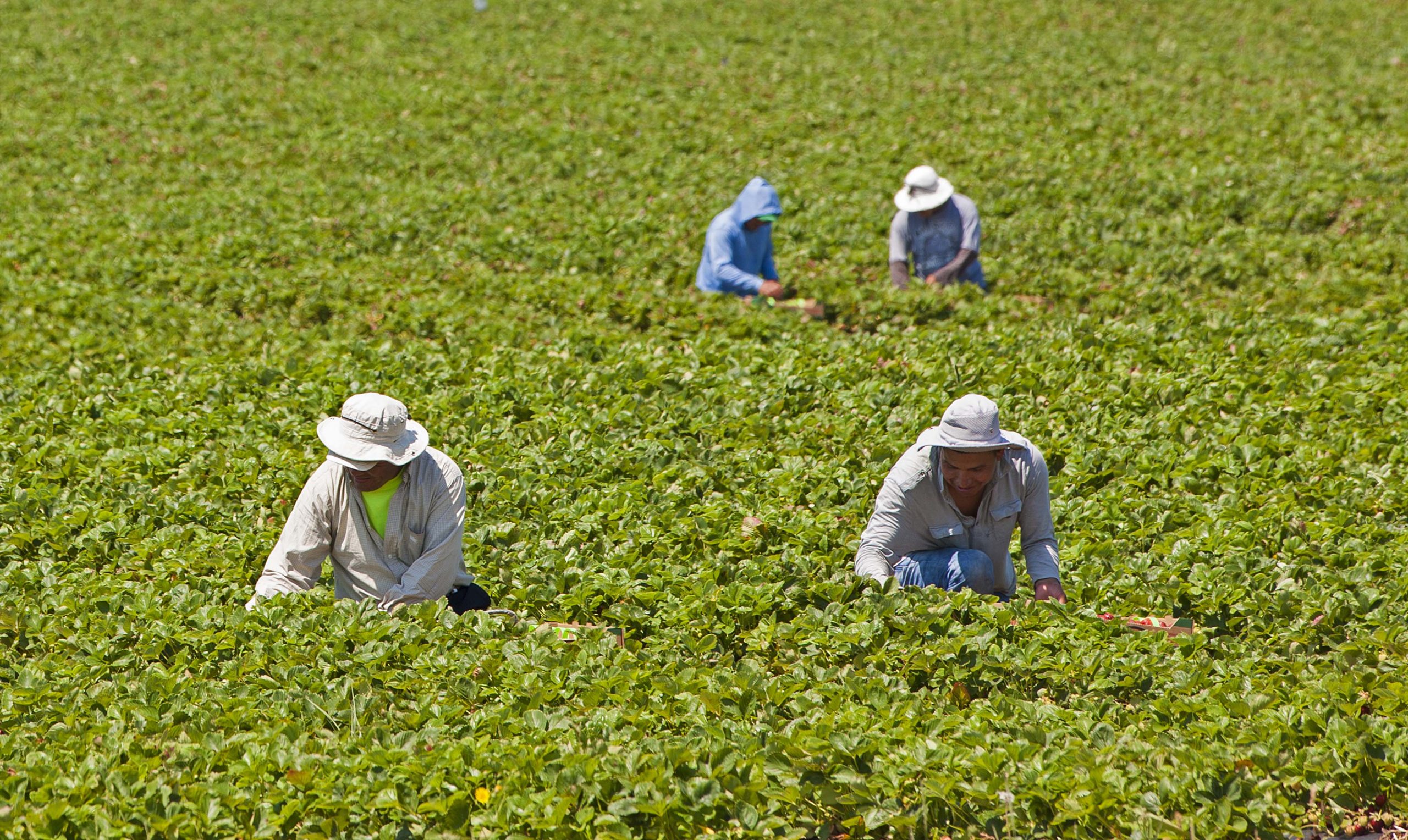In our state there are no legal standards to protect farmworkers from heat stress. To change that, we work with universities to gather the proof to base legislation on. We also help farmworkers to deal with the heat, for example by training hydration coaches who remind peers to drink early and often.
Florida is on pace to go from about 20 farmworker ‘danger days’ to a 120 danger days by 2030, according to Climate Central and the Environmental Protection Agency EPA Florida forecast (pdf). A day is dangerous for outside workers when the temperature reaches 105 F.
Kidney failure in farmworkers
“If you go and look at older workers and see the number of workers that have kidney failure or are on dialysis, that’s not talked about,” says Jeannie Economos, coordinator of the Pesticide Safety and Environmental Health Project with the Farmworker Association of Florida in a recent interview with the Cleo Institute. She says farmworkers’ clothing exacerbates their risk of heat stress because they must wear long sleeves, pants, hats and gloves to protect themselves from insects and pesticides, as well as masks to avoid COVID-19.
No time to drink
The risk for farmworkers is intensified because, instead of being paid hourly, many farmworkers are paid a “piece rate” — a fixed rate for, for instance, every five-pound box of tomatoes they harvest. “Sometimes they don’t drink water so they don’t have to take breaks,” Ms. Economos said. “It’s horrible.”
Crucial research
The Farmworker Association of Florida combats the heat risks by joining forces with universities and research institutes. By documenting heat stress in Florida farmworkers in a scientific way, we can lay the base of legislation that is based on facts rather than anecdotes.
Hydration coaches
Furthermore, in partnership with Florida State University, the Farmworker Association of Florida offers training where health workers from the farmworkers’ communities educate them about reducing heat risks and pesticide exposure. We are teaching individual workers to be ‘hydration coaches’, reminding their peers to drink early and often, and providing supplies like water bottles and electrolyte powders. We are also working with employers to raise awareness of best practices to reduce heat risk.
How can I help?
Did you know that a federal food safety measure that aims to protect consumers from disease transmission prohibits workers from bringing personal water bottles to where they’re planting or harvesting?
The best way to support the efforts of the Farmworker Association of Florida to protect our members from the brutal Florida heat is to contact your representative, to make a donation or to contribute to our organization in another way, for example to volunteer some of your time.
Read the whole article by the Cleo Institute: “Rising temperatures intensify risks for Florida Farmworkers”
Further reading on the newest research, a multidisciplinary look at heat stress in the military, in athletes as well as in farmworkers.

